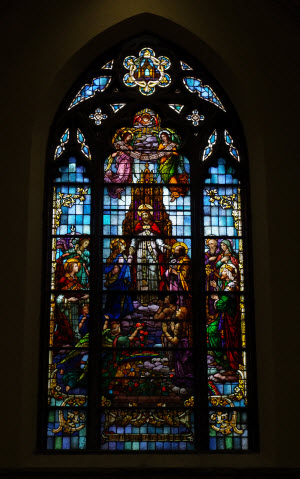For Part 2 of this series, please click HERE.

 AST WEEK, we covered the reading and responsory during Evening Prayer. This week, we will wrap up the liturgy with the Gospel Canticle, Intercessions, and the Our Father.
AST WEEK, we covered the reading and responsory during Evening Prayer. This week, we will wrap up the liturgy with the Gospel Canticle, Intercessions, and the Our Father.
The Gospel Canticle for Evening Prayer is the Magnificat, or the Canticle of Mary. This timeless text is the high point of this liturgy. Historically, this piece has been executed as a choral piece. There are countless settings of it by many composers. The magnitude in which the Magnificat outnumbers an other musical setting of the canticle shows how much more popular this particular Hour was among the general public throughout time. Simply put, the people came to pray at Vespers, and this song is the climax of that prayer.
Its format is exactly like those of the psalms: the proper antiphon is followed by the canticle itself, followed by the doxology, and rounded out by the repetition of the antiphon. It can be executed in the same way that the psalms are, but I would comment that it seems awkward in this case to interrupt this text after each verse to sing an antiphon or refrain. It is not specifically forbidden, but I would argue that it’s in bad taste. This is definitely the time to “do it up.” If you have a choir, this is a good time for them to shine. Make this the high point of the liturgy.
Following the Magnificat are the Intercessions. These are just like the petitions offered at Mass. There is typically a specific response given in the ritual, tied to the given day or feast. Other than that, it is straightforward. Consider chanting these in the same way you would at Mass.
The Lord’s Prayer follows the Intercessions. This is common prayer; let the people sing this.
The proper prayer of the day rounds out the liturgy. This is proclaimed by the priest or other leader. The final blessing is either the normal one offered by the priest, or the formula:
May the Lord bless us, protect us from all evil, and bring us to everlasting life. Amen.
if prayed in common.
I hope this series has been of some use to those of you with little experience praying the hours. This beautiful liturgy is the prayer of the whole Church, and deserves more attention in the local parishes. Let us all offer our thanks to God in prayer and song through the beauty and tradition of the Hours.
